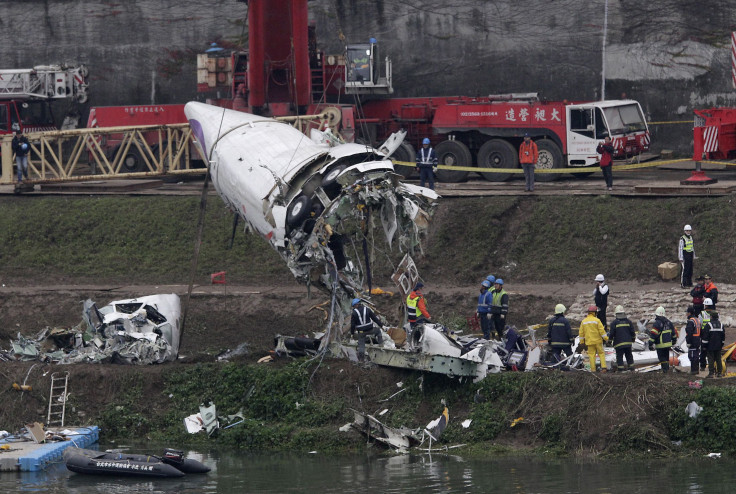TransAsia ATR Pilots Suspended For Failing Test, Local Airlines To Review Safety Protocols: Taiwan

Taiwan’s aviation regulator announced Wednesday that 10 TransAsia pilots failed oral proficiency tests for handling an aircraft during engine failure and have been suspended. Forty-nine pilots who fly the airline's ATR-model planes took the test following the Feb. 4 crash of Flight 235 that killed at least 42 people, while one passenger remains missing.
The Civil Aeronautics Administration (CAA) said that along with the pilots who failed the test, 19 others who did not take the test for various reasons have also been suspended, Reuters reported. The agency had previously said that those who cleared the oral test would go to the second stage of retraining. Of the 71 ATR pilots, 19 of them did not appear for the tests, citing either sickness or because they were not in the country.
"The result is not acceptable for us," TransAsia CEO Peter Chen said, according to Reuters. "We will definitely strengthen their training."
The Taiwanese government also ordered all local airlines to review their safety protocols following last week's crash. "The lunar Chinese new year holiday is coming... We'll ask every local airline to check their flight safety," Chen Jian-Yu, the transportation and communications minister, told Reuters after the test results were made public.
Flight 235, an ATR 72-600 aircraft, crashed into a river in Taiwan with 53 passengers and five crew members. Authorities claimed that the plane's left engine was shut down, apparently by one of the pilots, in a bid to restart both engines, but the attempt failed as the plane crashed before the pilots could take further measures. Taiwanese officials and aviation analysts have said the evidence presented so far points to the possibility that the pilots may have accidentally cut the wrong engine.
According to an analysis of the flight data recorders, the plane, which was traveling from Taiwan to the Kinmen islands off the coast of southeastern China, lost both its engines minutes after takeoff. The pilots reportedly called "mayday" and announced an engine flameout 35 seconds after noticing an engine failure. However, the CAA confirmed Tuesday that Taipei International Airport’s control tower did not hear the “mayday” signal sent out by the pilots.
“When the control tower tried to contact the aircraft at 10:53am on Wednesday last week, the flight happened to call out to the control tower at the same time, which produced noises during the communication, explaining why the control tower did not hear the Mayday signal,” Lee Jian-kuo, director of CAA’s air traffic control department, said, according to Taipei Times, a local news outlet.
© Copyright IBTimes 2024. All rights reserved.





















